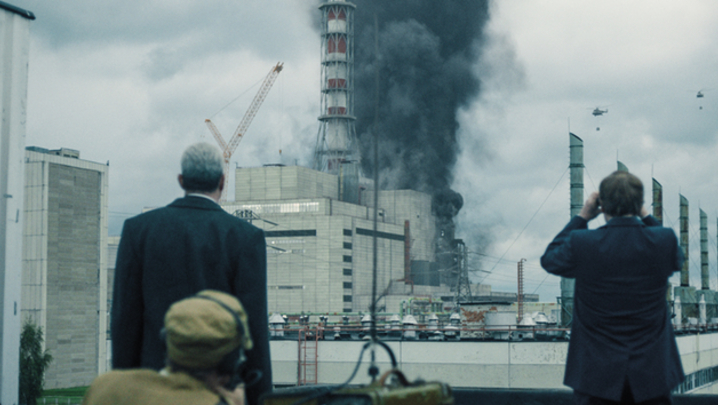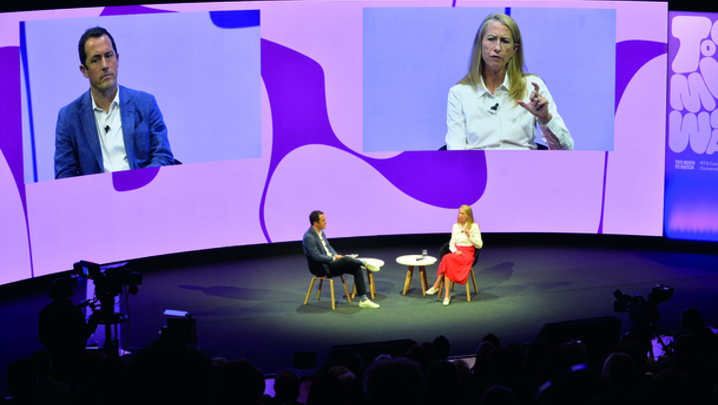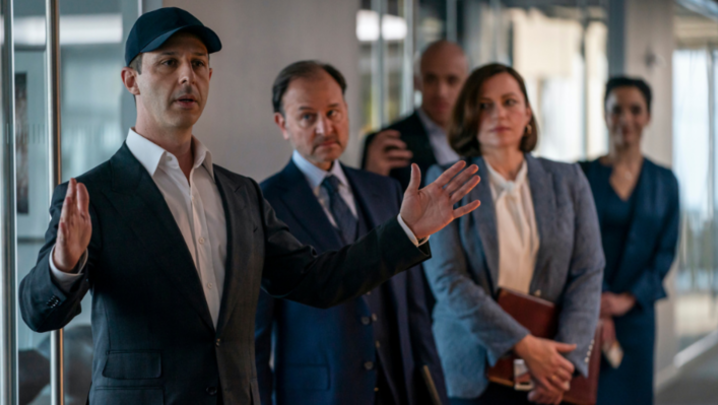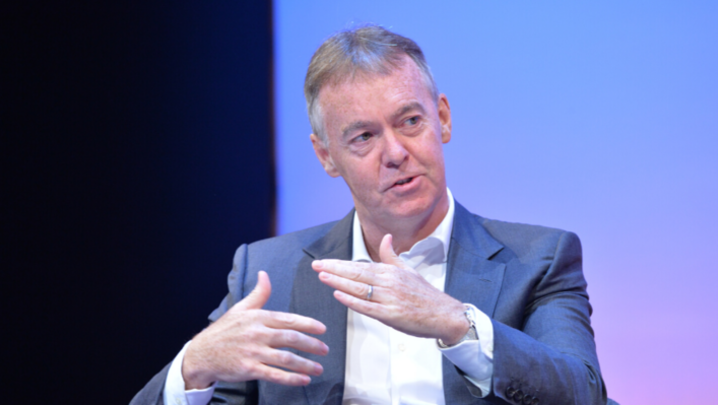Sky’s content chief, Zai Bennett, tells the RTS what it takes to make standout TV such as Gangs of London and I Hate Suzie
For one of the most powerful programme chiefs in the UK, Zai Bennett, Managing Director of Content for Sky UK and Ireland since June 2019, wears his authority lightly. He is responsible for a portfolio of services that includes Sky Atlantic, Sky Comedy, Sky Documentaries and Sky Arts. He has helped to nurture such hits as I Hate Suzie, Gangs of London, Bulletproof, A Discovery of Witches, Save Me, In the Long Run, Breeders and Brassic.
Asked at a wide-ranging RTS “In conversation with…” event to share the most important thing he would like to impart to a member of his team when they leave Sky, his deadpan reply was: “Don’t be a twat.” He added: “You want to work with nice, interesting people who are fun.”
This description seems to apply to Bennett himself, a TV-sector prodigy whose upward trajectory at Sky was evident under Rupert Murdoch and has continued under Comcast’s ownership. More than a decade ago, he was an influential Controller of BBC Three, commissioning hits such as The Call Centre and Bad Education. He had previously worked at ITV, running its digital channels and where he had been responsible for Celebrity Juice and The Only Way Is Essex.
But today’s content landscape is unrecognisable compared with the one in which Bennett’s job was to please young adult audiences. So, too, is the economic landscape. Even the largest of media companies are feeling the financial squeeze. However, he brushed aside a recent report in The Sunday Times that Sky was preparing to axe hundreds of jobs among its customer services and engineering staff. “These are tough economic times, but ever since I’ve been at Sky, it has been ruthlessly efficient. We are constantly looking at ways of doing things better.”
Throughout, Bennett looked relaxed, even when his interviewer, the broadcaster Nikki Bedi, tried – more than once and in vain – to trip him up. He stuck to his message: he was determined to ensure that Sky remained a “best-in-class” producer and provider of premium content across scripted and unscripted, committed to giving customers value for money when money was tight. “If you look at the sorts of things we are making, across all the genres, you can see the ambition, the scale and the investment,” he said. “We do not make loads.… We are very specific about the genres we work in. When we’re in them, we try to make best-in-class pieces.”
Regarding Sky as a platform, Bennett said this gave audiences something they were “crying out for – aggregation”. He added: “People are desperately asking not to have to spend 100 days of their life surfing telly” just to find something they want to watch.
On the crucial matter of programme budgets, he insisted that his “looked really solid”. It was essential, he added, to “invest for the future – and to invest early”.
‘[For] the genres we work in… we try to make best-in-class pieces’
Bennett said it was a myth that Sky Atlantic’s critically acclaimed acquisitions, such as HBO’s The White Lotus and The Last of Us, were more popular than Sky Originals such as I Hate Suzie and Brassic, both RTS award-winners.
Even the ubiquitous Succession took a couple of series to become popular with UK audiences. “It did 100,000 to 200,000 in season 1, a couple of hundred in season 2, then, eventually, the media noise become so loud that people dived in,” he said.
But HBO shows such as Succession and Game of Thrones are critical to Sky’s branding. There is continued speculation about what Sky will do when its exclusive output deal with HBO ends in 2025. It could be an opportunity for Warner Bros. Discovery to finally launch its streaming service, Max, in the UK.
Bennett sounded phlegmatic: “We are incredibly good partners, we love working with HBO. We’ll see what it wants to do.
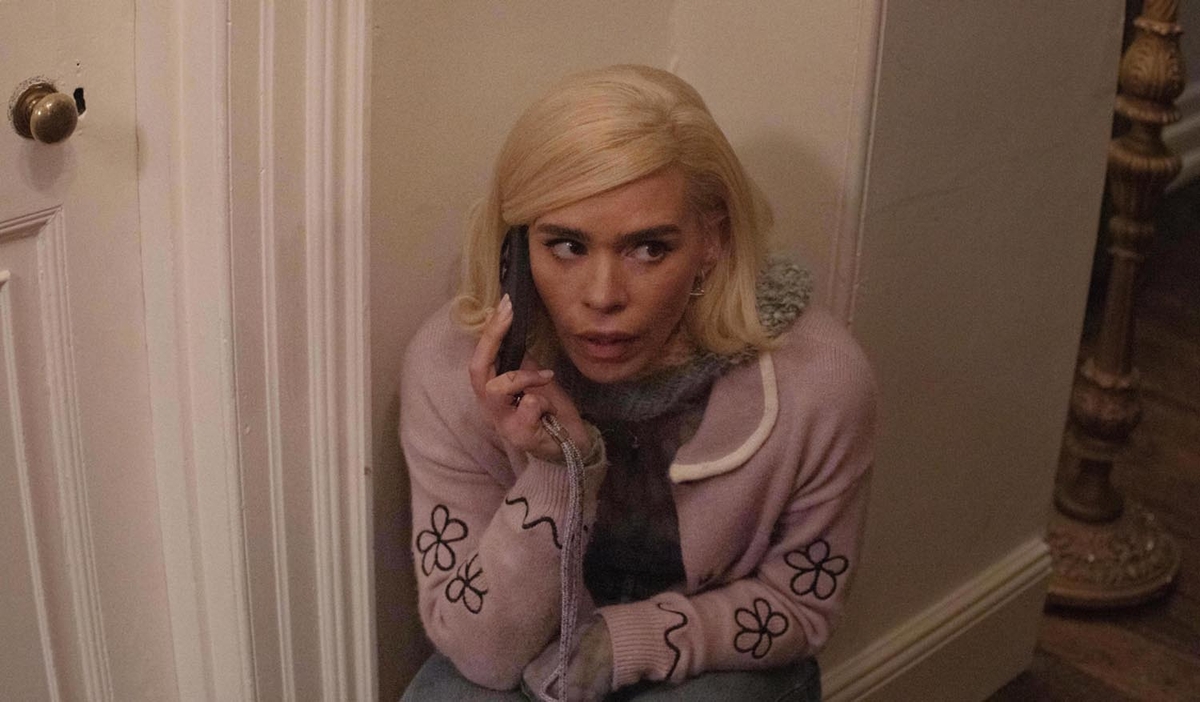
“The main thing for us is to try to own our future, invest in originals and have a critical mass of great shows. We are working towards that.”
He added: “When I think of what HBO gives us, there are some shows that are not replicable – The Last of Us and Game of Thrones – but, generally, Gangs of London, I Hate Suzie, Discovery of Witches and Bulletproof generate more viewers than the vast majority of shows I get from HBO.
“In general – [although] there are a couple of superstar shows – our customers prefer our own commissions in bigger numbers. There’s a style of storytelling, access to talent and storytellers that HBO has which is exceptional. Absolutely, we should try to stand shoulder to shoulder with that.… You don’t have to copy it, rather, ask yourself what the British version is.”
Bennett is a lover of high-end US TV, but he emphasised that Sky’s British flavour, evident in the shows he oversees, is a real point of difference between Sky and its rivals, particularly the US streamers.
‘We’re probably making slightly fewer titles but paying a bit more for them’
“This is an overly simplistic way of thinking of it,” he conceded, “but we’re more British than streamers generally are, and we’re probably a bit more premium than most terrestrials…
“The core of what we do is high-end telly, mostly it’s quite expensive and has to be best in class. Mostly, there is a lot of Britishness about our originals – but buying the best of the US is equally important to us.”
Where, then, was the UK market for scripted, as the content boom shows signs of subsiding? “Historically, it’s been insane, but there has been a correction,” said Bennett. “The streamers are being a lot more cost conscious, looking at what they’re making across the board.… Generally, people are being more cost conscious and more choiceful.
“We’re being more choiceful, probably making slightly fewer titles but paying a bit more for them. When you’ve got fewer balls in the air you want to keep them in the air a bit longer and take more time to make those decisions. Things are slowing down a bit.”
As some streamers embrace more traditional TV tropes – introducing advertising and holding back episodes for weekly release – Sky’s USP appears to be unchanging.
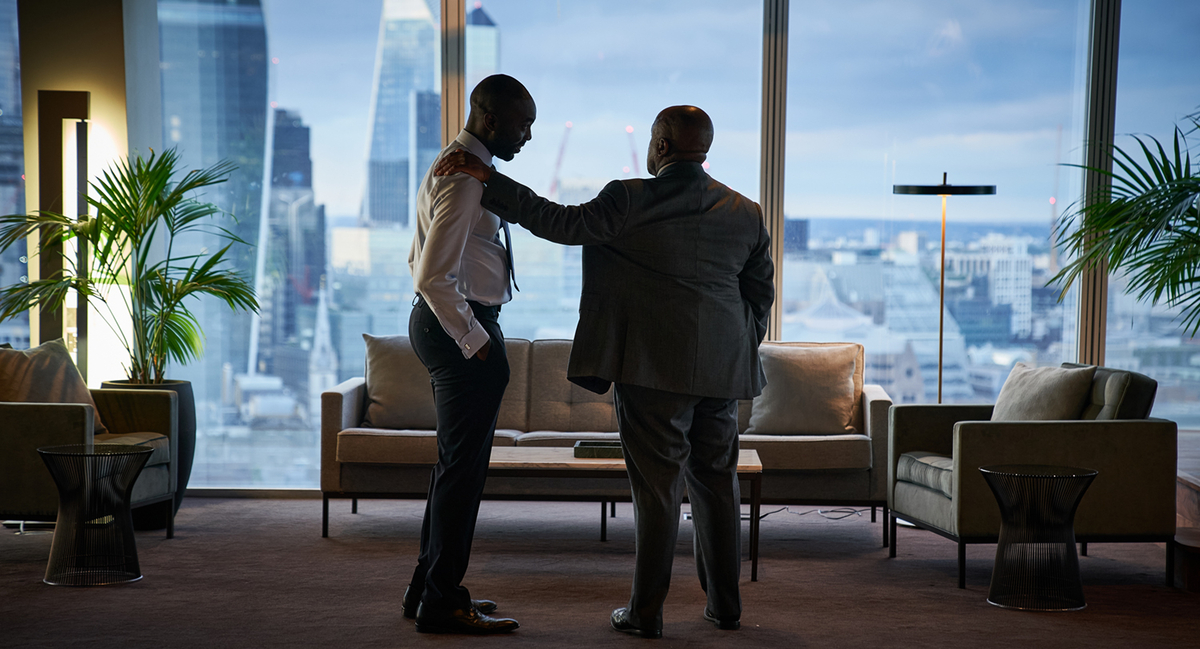
“Sky is a premium product, it’s not a streaming product, we have one of those in Now TV. They have different economics to us. They are going through their own business plans and working out how they can make those make sense. You can see what’s happening at Netflix and Disney. They are having a more choiceful moment,” he noted.
One highly anticipated new Sky drama is the Jacobean costume saga Mary & George, starring Julianne Moore and Nicholas Galitzine. “It’s about power, politics and sex,” said Bennett. “It looks stunning, and it’s got swagger. It’s not your normal period drama. Our shows have to be really distinctive. Other people make nice period drama. That’s fine. We don’t need to do that… There’s tons of sex in it, and the talent is amazing.”
As for when in the creative process he knows that an idea is working, he said it was different for every genre. For Chernobyl, Bennett started to have good vibes about the series as soon as he read the script. But he warned that, even having a good script, “there are still plenty of ways to mess up” a show.
He recalled: “I knew Chernobyl was going to be OK when I saw the first casting tape.” He says he thought: “I don’t know what it is, but I think I want to watch more of it. Let’s see what we can do with it.”
Chernobyl turned out to be a seminal show for Sky, winning countless awards – it dominated the RTS Craft & Design Awards in 2019.
‘Brassic [is] the best-loved comedy on any channel… authentic, bloody well produced’
Having different voices involved in the commissioning process was essential: “It’s not just me, that would be mental.” He recalled how, when running BBC Three, he commissioned the reality show Don’t Tell the Bride, despite it not being top of his viewing menu. “I’m not naturally someone who wants to watch a show about hapless grooms putting on a wedding but there is a truth in that show, and there’s artistry and there’s joy. That’s why you have lots of commissioners and lots of diversity of voices.
“That’s why we have an Assistant Commissioner Scheme, where we’re making sure we’re getting even more diversity. My job is about making creative headroom. Sometimes, it’s about getting out of the way, sometimes it’s about strapping rockets to something, sometimes it’s about being a quality controller.
“I’m trying to help people, mostly the commissioning team and production companies, to do their best work.”
Were there any shows he wished he hadn’t commissioned? “Oh, yes,” he said to much audience laughter, “Loads of those”.
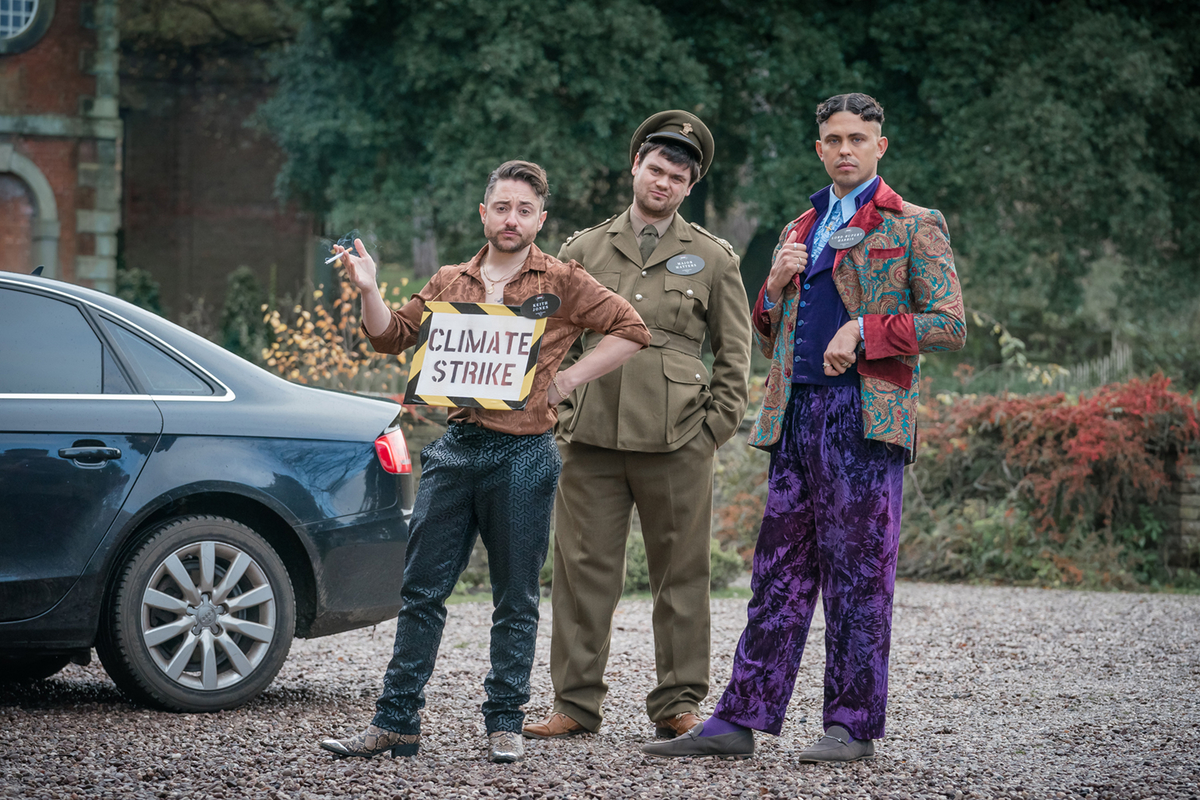
Why comedy is a serious business
"I’m a massive lover and consumer of comedy. It’s a genre that is really important to our customers.
It is important to reflect our audience on screen.
Brassic is a fantastic show and is the best-loved comedy on any channel. It’s authentic, joyous, bloody well produced, really well written and brilliantly acted and directed.
Comedy has got quite a broad palette. You can have propulsive, narrative pieces or more characterful pieces.
We want to have a bit of range in that, so you’ve seen Dreamland and Funny Woman."
Sky’s commitment to sustainability
"As a business we’re very mindful of it. We’re committed to going carbon neutral by 2030. Sky Glass is the world’s first carbon-zero-certified television…
We’re happy to do the more nudge stuff as a broadcaster. There is a daily climate-change show on Sky News.
More often than not, the embedded stuff works better, where you make it normal [in storylines], which is a bit harder for us because we don’t have soaps. But we try really hard where we can. We also try and make the productions themselves sustainable."
What’s on at Bennett’s house
"For pleasure, I tend to end up watching American things because I don’t want to think: ‘Oh, they should have done that, they should have done this.’ It is distant enough not to be work – although, obviously, it is work.
I’m enjoying The Offer, which is a Paramount+ show.
I am a massive fan of Taskmaster. I got pitched it at the BBC but didn’t do it. Now, it’s probably one of my favourite entertainment shows."
Question & answer
Diversity: more than box ticking
What are you doing to empower your commissioners to ensure your commitments to diversity and inclusion are more than a box-ticking exercise?
There’s the hard-edged numbers. Since we announced them in 2020, we’ve got a lot better on those metrics. A lot of this is behind the camera as opposed to in front [of it].
In front of the camera, we need to reflect society. We don’t have a diverse show. We have shows for our customers. Sometimes they are very diverse like Save Me… but all our shows need to be shows that work for our customers… Bulletproof, for example, had two leads who were black cops. We didn’t do those shows because we were ticking boxes, but because they were great, authentic shows.
Money is never the problem. We’re happy to spend money.… If a show can’t quite hit our numbers, we’ll say: ‘What can we do? Have a shadow director? Can we do different roles on this, different heads of department? Can we train people?’
There’s always bespoke [solutions] because every show is different. The Assistant Commissioner Scheme is a big intervention… We’re lucky that we’re making enough stuff so that people can have proper, meaningful jobs… From the top down, it’s a priority.
Report by Steve Clarke. ‘In conversation with Zai Bennett’ was an RTS National Event held at the Cavendish Conference Centre, central London, on 16 May. The interviewer was broadcaster Nikki Bedi. The producers were Sally Quick and Clare Laycock.


